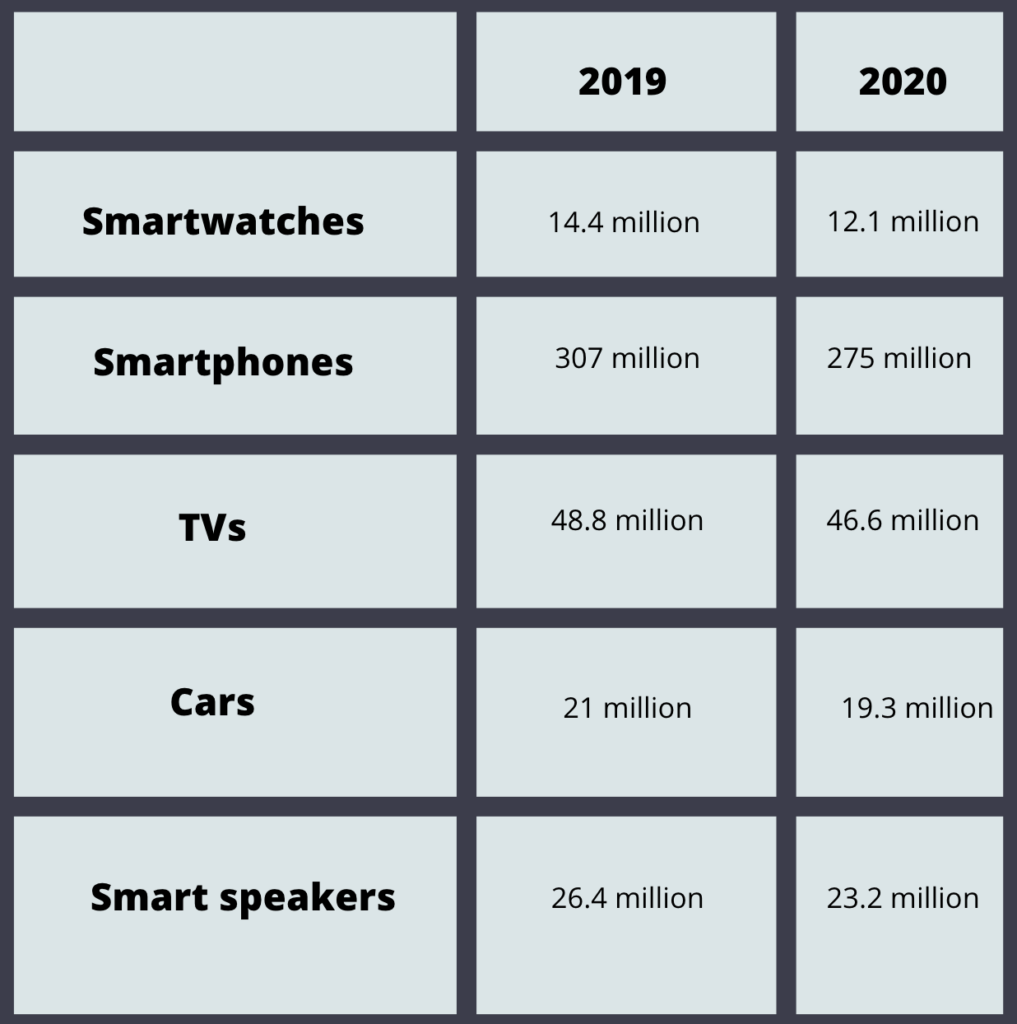No industry is safe from the coronavirus. It’s a tragedy for thousands across China and a massive disruption to the global economy that is likely to last for months.
Major companies are facing new communications challenges as they grapple with the outbreak in China by halting travel, closing stores and pausing production. As companies release their earnings, investors press for answers on how it will impact their financials.
Companies must make the health and safety of their employees and customers a priority, and quickly communicate the safety steps they put in place. Companies must act immediately. Waiting to respond until something has happened is not an option.
Red Fan Communications identified six major industries impacted by the outbreak: tech, entertainment, automobile, tourism, food, and clothing.
Check it out:
TECH
The global tech sector is facing a direct impact from the coronavirus. Facebook, Google, Apple and Tesla were all forced to temporarily close their offices and factories in China, whilst administering travel limitations to the region for employees and executives.
Factory closures have a direct impact on the global supply chain, particularly in the U.S. China provides vital components for companies around the world and manufactures 80 percent of the tablets and smartphones in the world.
Consumer electronics producers are expected to experience significant revenue loss and a reduction in productivity. As manufacturing faces barriers because of the outbreak, expect shortages, delays and financial losses for:

The numbers presented above are measured in units shipped. Production across the board is anticipated to decrease.
ENTERTAINMENT
China closed nearly 70,000 movie theaters in the country to attempt to slow the spread of the disease, harming the shares of IMAX and AMC. These closures have also caused a delay in film releases.
China is the second-largest moviegoing market in the world. Closures and release delays are hurting the global box office as local ticket sales diminish. Imported films in Chinese theaters have collectively grossed $37.8 million this year, an 86 percent reduction from 2019.
Disney shuttered its theme parks in Hong Kong and Shanghai due to the outbreak, and according to the company, the decision could decrease its operating income by about $175 million in 2Q 2020. Macau, the world’s largest gambling city, ceased operations for half a month. American casino Wynn Resorts closed its Macau location due to the coronavirus, causing the company to lose between $2.4 million to $2.6 million daily.
AUTOMOBILE
The outbreak has caused several auto plants to shut down operations in China and beyond. These include factories owned by Nissan, Tesla and Ford Motor. Extending beyond China, Nissan and Hyundai closed plants in other regions (e.g., Japan and South Korea ) due to component shortages from China.
According to the China Association of Automobile Manufacturers, the outbreak will disrupt the production of a minimum of 1 million automobiles in the industry. It will also disrupt Tesla’s plans to produce 150,000 electric vehicles at its Shanghai assembly plant, which closed from Feb. 2 through Feb. 10.
TOURISM
The global tourism industry is projected to face losses because of the outbreak as countless Chinese tourists are being quarantined. Chinese tourists spent $277 billion overseas in 2018, and this figure could fall considerably. After Beijing authorities restricted overseas group tours, the volume of Chinese tourists in Europe has noticeably decreased. According to the Los Angeles Times, “tourism-dependent businesses across Europe are bracing for empty hotel rooms and stores in the coming high season.”
– Tourism Economics predicts that the number of Chinese individuals forecasted to visit Los Angeles alone will decrease by 325,000, which would lead to a $921 million drop in direct spending in the area.
– The number of Chinese tourists to Thailand is projected to decrease by 2 million.
– Venice bookings by tourists have fallen by 30 percent from 2019. Italy could witness the loss of billions of euros because of hotel booking cancellations.
– An Olympic official said that if it proves too dangerous to hold the Olympics in Tokyo this summer because of the outbreak, organizers are more likely to cancel it altogether than postpone it.
– Events across Europe have been canceled since the outbreak began, including The Mobile World Congress, the largest mobile communication trade fair in the world. The event, scheduled in Barcelona, Spain, was expected to attract over 100,000 visitors, produce 14,000 temporary jobs, and generate $540 million in revenue. Organizers of this event had already initiated specific safety measures such as preventing visitors from hailing from the Hubei Province from attending.
RESTAURANT/FOOD
Thousands of restaurants/eateries have had to close their establishments in China. Hundreds of McDonald’s locations in the region are not operating. Starbucks closed over half of its Chinese locations. Yum Brands, which serves as Pizza Hut and KFC’s Chinese operator, shuttered one-third of its locations, while the rest of its restaurants have reported significant decreases in sales.
Outside of China, many Chinese restaurants, as well as some local grocery stores in the United States are struggling due to the outbreak and the stigma attached to it. Business is down 80 percent for many of these entities.
CLOTHING AND LUXURY
The clothing and luxury industry is also facing major manufacturing issues. UK retailers are experiencing four- to six-week delays regarding their spring fashion offerings. Global brands must also contend with lower store traffic in global shopping regions and deserted malls in China. Chinese consumers account for an estimated 38 percent of the overall global fashion sector. Here are some companies experiencing disruption:
– Canada Goose Holdings, Starbucks and FedEx lowered their profit outlooks for 2020.
– Nike has shut down around half of its stores in the country due to the virus and reduced hours of the other locations.
– Tapestry’s, the parent company of Stuart Weitzman, Kate Spade and Coach, predicted a decrease in sales by about $250 million in the second half of 2020.
– VF Corporation, the owner of The North Face and Timberland, temporarily closed 60 percent of the company’s locations in China.
– Under Armour, Inc. anticipates that its sales will fall by around $50 million to $60 million because of the outbreak.
– Skechers USA Inc. claimed that “its comparable-store sales in China — or those of stores open at least a year — were ‘below average.’”
– Luxury stocks took a hit because of the growing fears surrounding the coronavirus.
– On the final Monday of January 2020, stocks for Kering, Cie. Financière Richemont, LVMH Moët Hennessy Louis Vuitton, and the Burberry Group fell by 3 percent, 2 percent, 4 percent, and 4 percent, respectively, as concerns around the outbreak intensified.
SO AMID PANIC AND BUSINESS SHUTDOWNS, HOW SHOULD BRANDS HANDLE COMMUNICATIONS DURING THE CORONAVIRUS?
– Always be quick to respond and address consumer concerns.
– Update social media and issue statements to keep people informed on the spread
– Focus your content marketing strategy on hygiene and safety precautions in factories, warehouses and brick-and-mortar locations.
– B2B companies must keep vendors and stakeholders informed. Maintain a positive relationship with assurances to recover losses and solve problems.
– Ask the experts at Red Fan Communications!
At Red Fan Communications, crisis communications is one of our top priorities. Contact us to help build your crisis plan… before a crisis erupts!





